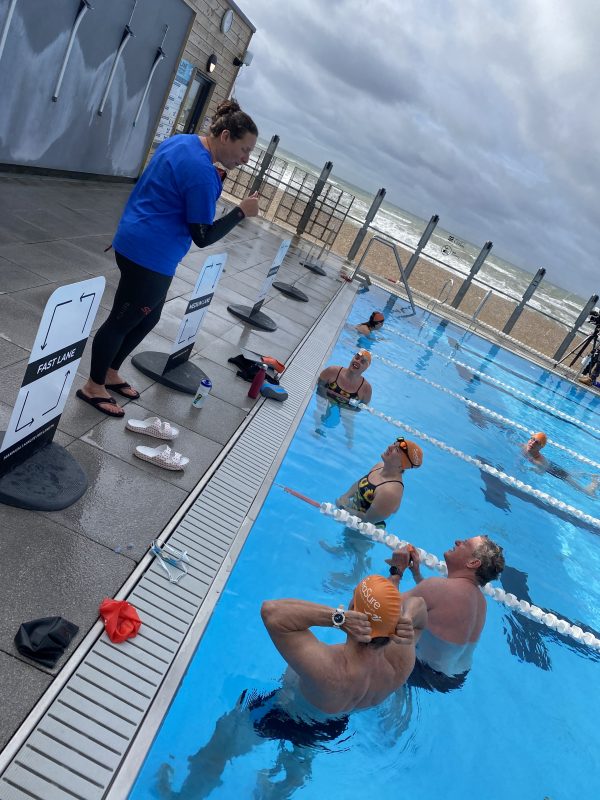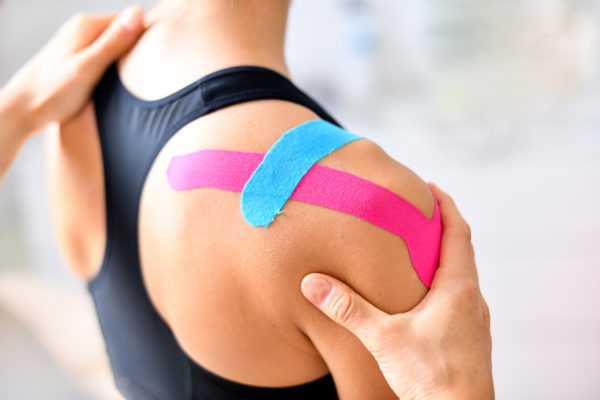My name is Amber Keegan and this year I placed 18th in my first ever World Championships in the 10 km (marathon) swim, but my path there was certainly not straightforward.
I didn’t start swimming because I dreamed of racing internationally, I started swimming because my parents wanted me to be as safe as possible in the water. Despite participating in various sports as a child, swimming brought me more joy than any of them. I couldn’t have verbalised what it was about swimming then… but now I can tell you that it’s because when I’m in the pool, everything else vanishes. Stress, fear, and worry… all disappear when my head is in the water. It’s where I’m most at peace.
I probably didn’t appear to be a particularly talented kid. My technique was terrible, but my enthusiasm was through the roof. From there, I gradually worked through the swimming system, from county championships to regionals to nationals. Despite this, it came as a bit of a surprise when I qualified for the 2013 European Junior Championships, and even more of a surprise when I won a silver medal. It made me think differently about swimming, take it more seriously, and consider the pathway to senior swimming.
I thought I was at the beginning of an exciting upward trajectory, but sport swiftly brought me back down to reality. I spent 2014-2016 swimming slower than the years before – a plateau that many people (especially girls) experience transitioning to senior swimming. Finally, in December 2016 I burst through with a solid senior swim that put me inside the Top 20 World Rankings for that year.
Once again, I thought I was on the way somewhere, and once again, I swiftly crashed back to earth. This time, I tore my hamstring in January 2017. My stretch of bad luck (and not enough rest to recover) continued over successive years. I got a shoulder injury in 2018 and was hit by a Range Rover in 2019. I finally got back to full training and racing speed just in time for Covid, when pool access became restricted, and I couldn’t swim.
During the five years from 2017-2021, I had a lot of time to question why I was still pursuing the dream when it appeared all the cards were stacked against me. Even now, I wonder if was sense or stupidity that kept me training through half a decade of not being able to compete near my best.
Regardless, something kept me hooked. Initially, it was determination simply “not to end swimming like this”. But during the years I was injured, I also struggled a lot with my mental health. It made me realise how much swimming had helped me in the years before I temporarily lost my sport due to injury. Sport had helped me with exam stress as a teenager, it had helped me deal with grief, and it had even given me a reason to recover from an eating disorder.
Recovering from my eating disorder was harder than anything I’ve done. I had been unknowingly undereating for a long time, simply by underestimating the calorific intake I needed to support my training. When I got injured, a compounding mess of factors including missing my sport, stress, and the pressure on women (and female athletes in particular) to look a certain way led to me using a food restriction to control everything that was spinning out of control. Eating disorders aren’t a choice, more of a subconscious coping mechanism. I hadn’t even realised I had one until my nutritionist at the time helped me to realise it and get help. Swimming was the factor that motivated me to start getting professional help and keep me on that path to getting better.
When I was a younger athlete, I’d have probably told you that my “why” for swimming was to see how good I could be. That curiosity and determination remained… but as I went through treatment and started rebuilding into swimming my motivation shifted. During my eating disorder recovery, I had felt so alone. I knew no peer who I could speak to about it, despite knowing that up to 25% of the swimming population struggled with it. I wanted to prove to myself that it was possible to return from my setbacks. More importantly, I knew that when I was healthy and happy enough, I wanted to share my experiences with others in the hope that it could make even one other person feel less alone. And I did. I was the first actively competing British swimmer that I’m aware of to speak up about eating disorders. Later, I also set up a not-for-profit organisation alongside other female athletes called Athlete Interactions. We have since launched an Athlete Support Network that offers female athletes aged 16+ a peer to confidentially chat with about anything they need to. The conversation about mental health, and the support available, is slowly improving. To be a small part of that shift is something I’m prouder of than any accolade in the water.
My career isn’t over, in fact, hopefully, I’m early into it. But when I look back at what swimming has given me, it isn’t really about the medals or records or even my personal best times. It’s about the friendships I’ve made, the places I’ve visited and the things I’ve learned along the way. Next year, I race at the World Championships (Doha, February), for one of the remaining 19 places at the Paris 2024 Olympic Games. I dream of making Paris to show younger athletes that health issues (physical or mental) don’t mean the end of your career, that investing in your mental health is worth it, recovery is worth it.
My next race is a World Cup (2nd December, Portugal). If you’re interested in keeping up with my journey, the best place is Instagram @amber.keegan @athleteinteractions.




